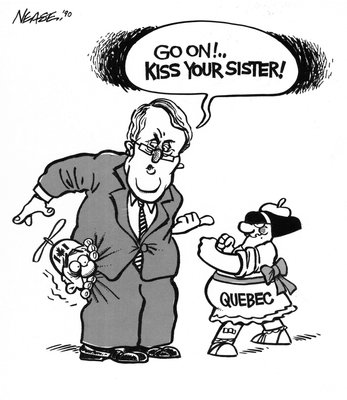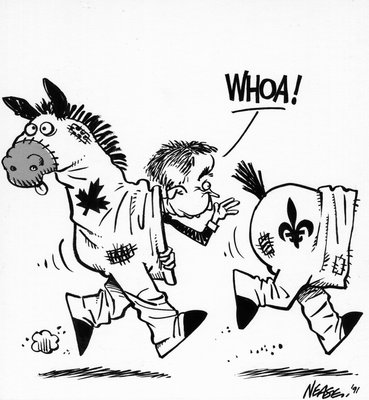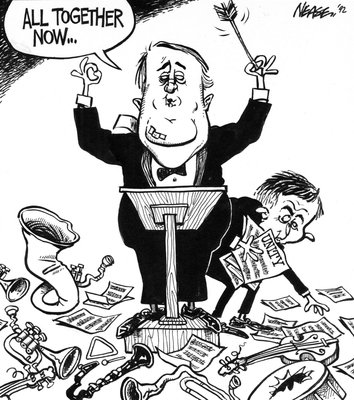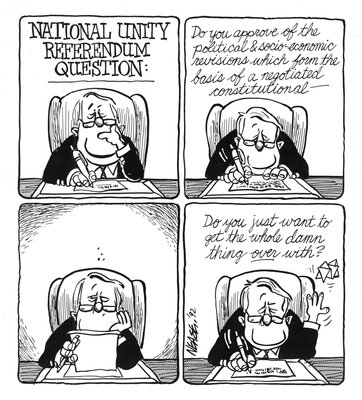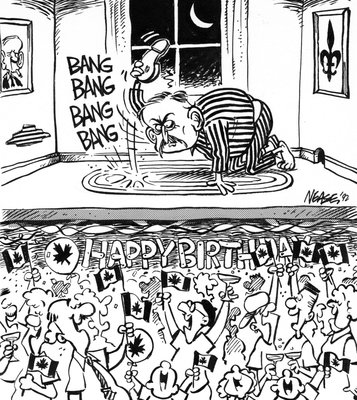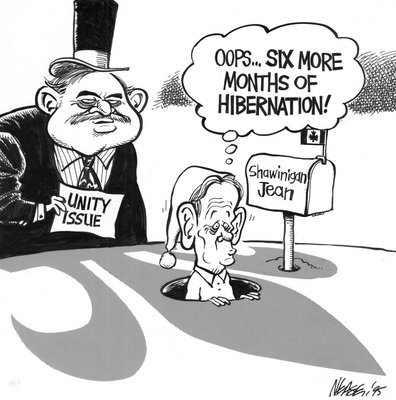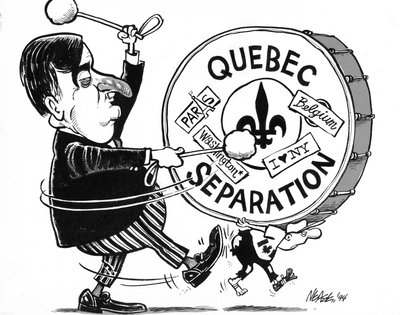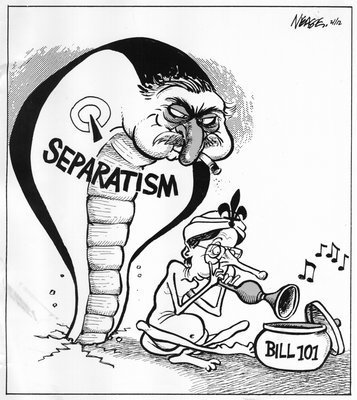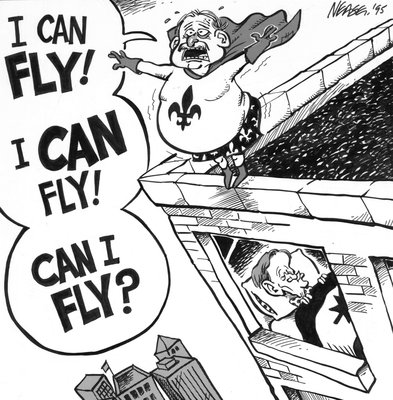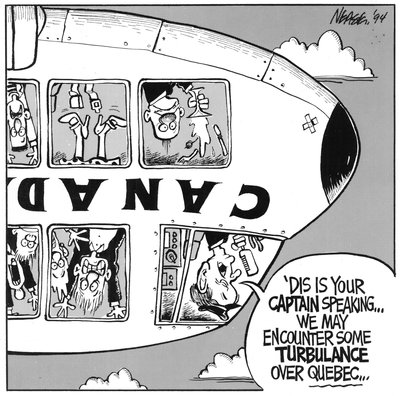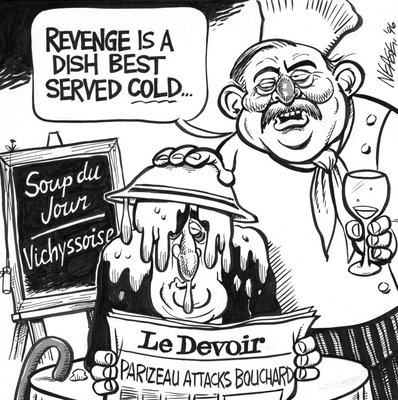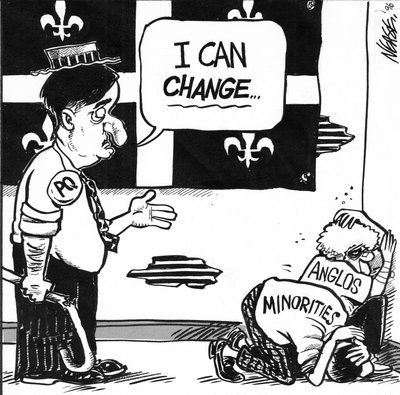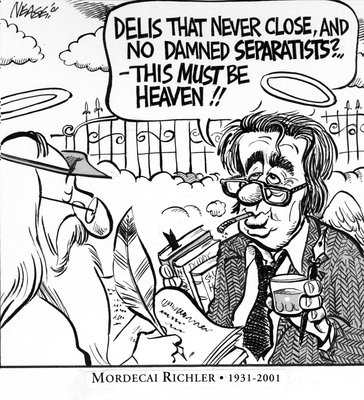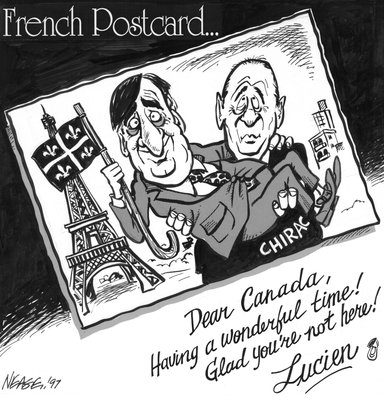Brian Mulroney asks for an amicable relationship between two parties, one of which being more confrontational than the other,
in fact, wanting nothing to do with the other.
As Joe Clark tries (and fails) to get used to this idea,
a tireless Mulroney tries to maintain a harmonious tune,
one that Canada has grown rather weary of,
and no one more so than Mulroney himself.
Meanwhile, Jacques Parizeau is continuing to find his accommodations unsatisfactory,
so when Jean Chretien is elected in 1993, he ensures that the new Prime Minister will hear about it.
In fact, Bouchard makes certain that all of Canada will hear about it.
With the evocation of Bill 101, the separatist movement resurfaces with more fervor than ever before,
but Canada is made to wonder whether Parizeau's independent Quebec could in fact survive on its own. (Apparently, his supporters were made to wonder too, because he was eventually pressured to let Bouchard take over.)
Under Chretien, Canada is forced to confront the fact that its established political fabric is truly being threatened by unraveling forces. People from coast to coast feel the effects,
even after the 1995 referendum, when Quebec voted "no" to sovereignty.
But now Parizeau and Bouchard are quarrelling,
because Bouchard is failing to pursue independence with his initial zeal.
So while author, Mordecai Richler, revels in the fact that the uproar has died down,
Bouchard takes a much needed vacation,
leaving Canadians to ponder the important questions.

